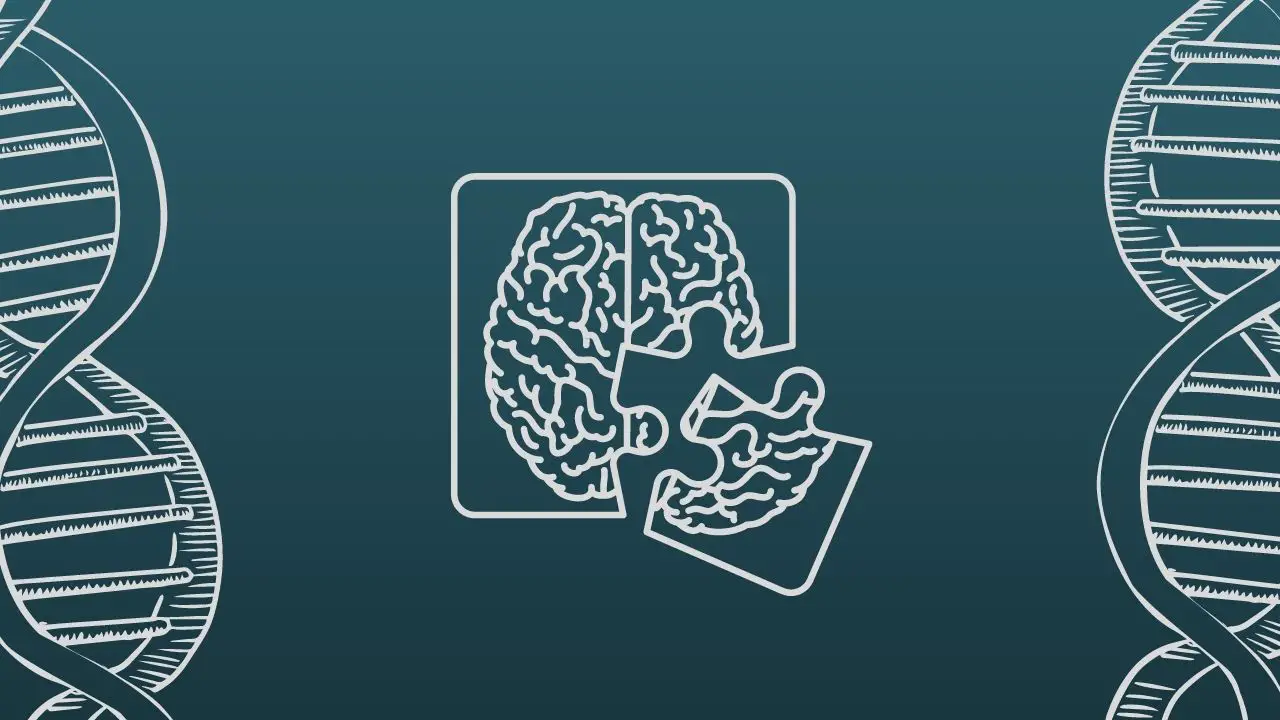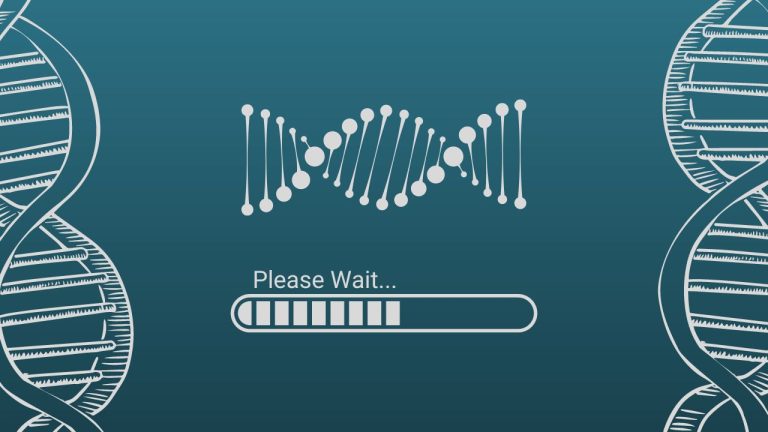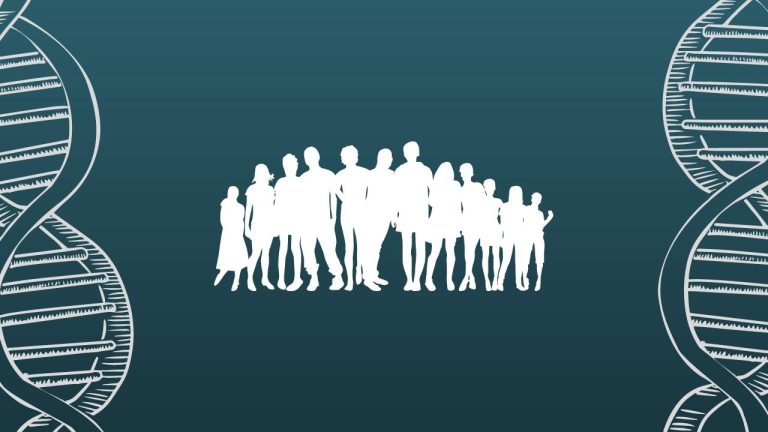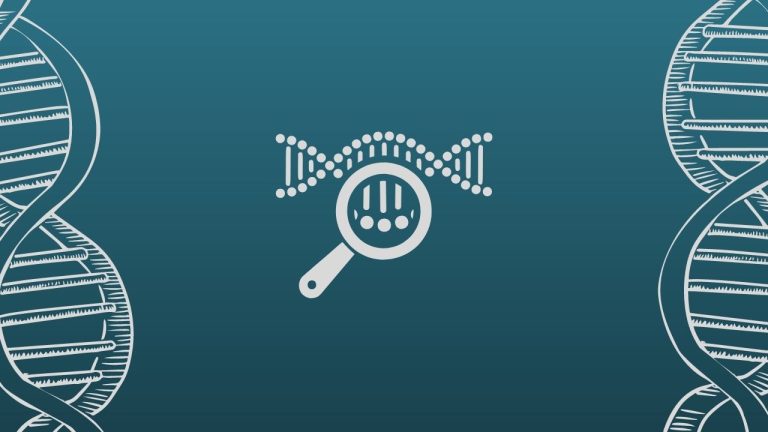Is Alzheimer’s Genetic and Can You Test for it?
Alzheimer’s disease is a degenerative neurological condition that affects the brain, causing it to shrink, and leading to death in brain cells.
Alzheimer’s is known as the leading cause of dementia. It affects nearly 5.8 million people in the United States aged 65 and older.
The disease’s early symptoms include forgetting recent events and conversations. A person with Alzheimer’s disease will develop serious memory problems and lose the ability to perform daily tasks as the disease progresses.
Scientists believe that the damage may have occurred years before the symptoms manifest. The disease is characterized by abnormal deposits of protein forming hard plaques and tangles throughout the brain that interfere with normal brain function.
Currently, no cure or treatment changes the disease process in the brain. The advanced stage of Alzheimer’s is often associated with complications from severe loss of brain function, including infection, dehydration, and death.
Is Alzheimer’s Hereditary?
The causes of Alzheimer’s disease remain unclear. However, research shows that several factors, including genes, may contribute to the development of the disease. So the simple answer to the question, “is Alzheimer’s genetic”, is maybe and at least in part yet.
Researchers divide Alzheimer’s genetic risks into risk genes and deterministic genes. A person who carries a risk gene is more likely to develop a particular disease.
On the other hand, deterministic genes may be directly responsible for developing a disease. In the case of Alzheimer’s, scientists have discovered several risk and deterministic genes.
Risk genes

A few genes have been linked to Alzheimer’s disease. Studies have shown that the apolipoprotein E-E4 gene has the strongest link to Alzheimer’s disease risk ( APOE e-4).
The Alzheimer Association estimates that 20-25% of people who carry this gene will develop Alzheimer’s disease. An individual who inherits the APOE e-4 gene from both parents is like to develop
Alzheimer’s disease than one who inherits the gene from one parent.
Similarly, having the gene may also see a person experiencing symptoms and getting diagnosed at a much younger age. Although everyone inherits an APOE gene in some form or another, the APOE-2 and APOE-3 genes have no link to Alzheimer’s disease.
Deterministic genes
There are three specific deterministic genes as identified by scientists. According to researchers, these genes may cause Alzheimer’s disease. They include:
- amyloid precursor protein (APP)
- presenilin-1 (PS-1)
- presenilin-2 (PS-2)
The genes named above are in charge of the abnormal accumulation of amyloid-beta peptide, a toxic protein that forms clumps in the brain.
This accumulation is responsible for nerve cell damage, and death is seen in Alzheimer’s disease. Yet, these genes are not present in every individual with early-onset Alzheimer’s.
A person who carries and develops Alzheimer’s disease has a distinctive form known as Familial Alzheimer’s disease.
Statistics show that Alzheimer’s caused by deterministic genes occurs before 65.
Although, it sometimes appears in people in their 40s and 50s.
APOE alleles and how they affect Alzheimer’s disease
- APOE 2 is a relatively uncommon gene that may offer some protection against the disease. If a person with this allele develops Alzheimer’s disease, it usually occurs later in life than an individual who has APOE 4 gene.
- APOE 3: This gene does not affect the risk of developing Alzheimer’s disease. It is present in approximately 80% of the population.
- APOE 4 is linked with an increased risk of late-onset Alzheimer’s and is also attributed to an earlier stage of the disease onset.
Although 14% of the general population carries APOE 4, 37% of people with late-onset Alzheimer’s disease have this gene copy. A person with one APOE 4 allele is 3 to 4 times more likely to develop Alzheimer’s disease. Similarly, having two copies of APOE 4 ( one from both parents) increases the risk of developing Alzheimer’s by more than 10 times.
However, having an APOE 4 allele does not guarantee that a person will develop Alzheimer’s disease. Interestingly, some people with an ALOE 4 allele never get to develop the disease, while others who develop the disease Alzheimer’s have no APOE at all.
Genetic Testing For Alzheimer
Your doctor may suggest DNA testing for Alzheimer’s when a young or middle-aged person has a family history of early-onset Alzheimer’s disease.

A mutation in a single gene causes Early-onset familial Alzheimer’s disease (RFID). Genetic testing can predict if you will develop the disease in the future. It is also used to ascertain the presence of an eFAD gene in a patient already manifesting AD symptoms.
DNA testing for Alzheimer’s disease is grouped into two major categories. It includes diagnostic testing for individuals with AD symptoms and predictive testing for family members who may have inherited the disease gene.
APOE susceptibility testing is also used mostly for late-onset and is not recommended for preventive testing.
Diagnostic Testing
Diagnostic testing for AD is recommended in situations where there is an established case of AD in the family.
The test requires a blood sample that the affected individual donates. The blood sample is then checked for a mutation in the prensilinin 1, prensilinin 2, or app gene.
However, only a test for prensilinin 1 is commercially available in some countries like the US. If a test comes out positive, the doctor will be able to identify the mutations that cause AD in the family.
If the test is negative, the possibility of a genetic cause of AD in the family goes unresolved. Diagnostic testing for Alzheimer’s disease is done either through a commercial laboratory testing service or a CLIA-certified laboratory at an academic medical facility with a clinical genetics program in AD.
Currently, no companies in the US test for all eFAD genes. An absence of comprehensive DNA testing for AD has significantly limited the use of DNA testing for the disease.
Individuals can pay for diagnostic testing or through their health insurance. You may find medical research centres that cover the cost of genetic testing for volunteers who choose to partake in research.
Predictive testing for Alzheimer’s Disease
Predictive testing for AD is done when a specific mutation has been established in a given family. In this case, family members might have to seek predictive testing to discover if they have inherited the mutation or may likely develop the disease.

One major challenge with predictive testing is that clinicians cannot offer it due to the absence of a confirmed case of Alzheimer’s disease in the family.
It is important to halt preventive testing until a mutation is established in the family. The reason is that a negative result would still be inconclusive as the affected individual might have evaded an AD mutation that runs in the family.
In situations such as these, the result of preventive testing remains unclear, forcing clinicians to dissuade people from doing it.
The need for more research
Researchers believe that more genes that are yet to be identified play a role in the risk of Alzheimer’s disease. With such information, researchers could develop new ways to treat or prevent AD in the future.
Experts are also looking into genes that may protect against Alzheimer’s disease. Apart from APOE 2 allele, the APOE Christchurch gene variant is also known to be protective with a similar effect to APOE
Further research is needed to determine this gene allele on Alzheimer’s disease risk.
Direct to consumer testing kit for Alzheimer’s Disease

The US Food and Drug Administration has authorized one direct-to-consumer genetic testing company (23andMe) to conduct Alzheimer’s disease risk. The test looks at a gene known as APOE.
Specific variations in this gene have been linked to an increased risk of developing late-onset Alzheimer’s disease. At present, Alzheimer’s has no effective method of prevention.
As a result, several patient advocacy groups have discouraged genetic testing for AD, including direct-to-consumer testing, except in a research setting.
You must note that a direct to consumer genetic testing for AD may estimate your risk but cannot reveal whether you will develop Alzheimer’s disease.
Reasons why some people may require genetic testing for Alzheimer’s Disease

Genetic testing is a personal choice. Candidates for genetic testing share several reasons why they have chosen to undergo a test for AD
Some of these reasons are practical and, in some cases, charitable. The following are why some people choose to go for DNA testing for Alzheimer’s disease.
- To contribute to genetic research: individuals who choose to take a genetic test for AD may be doing it to enhance research in the field for their benefit, family, or the unborn generations.
- The curiosity to know: People who have Alzheimer’s disease in their family may be curious to know if there is any likelihood of them developing the disease. The anxiety to know tends to heighten as they approach the age of onset.
- To make lifestyle changes: Although there is no effective preventive approach for AD, individuals may see the need to adjust their lifestyle by eating healthily and spending more time with family.
- To plan their finances: People may want to plan their long-term care and disability insurance, retirement advance, etc.
- Family Planning: Some people may choose not to have children if they discover that they carry a gene for Alzheimer’s disease.
- Fear of the unknown: Some individuals are scared that they might have developed Alzheimer’s disease. These people begin to question their sanity and attribute their forgetfulness to AD. Interestingly, many cases have shown that an individual does not carry the mutation.
Benefits of speaking to a genetic counsellor before a DNA test for Alzheimer’s Disease

Before getting a genetic test for AD, the first step to take is to speak to a counsellor. The Alzheimer’s Association also recommends you speak to your counsellor after receiving your result.
A genetic counsellor can help you understand what the test signifies for you. Your genetic counsellor can assist you in making the right choice regarding ordering the right testing kit for you.
With a genetic counsellor, you can understand the details of your result after receiving it. A genetic test for Alzheimer’s test will not answer your question in black and white.
So a genetic counsellor would be able to guide you every step of the way. You can contact your local Alzheimer’s society or your doctor if you pursue genetic testing.
FAQS On Genetic Testing For Alzheimer’s Disease
- Should I get genetic testing for Alzheimer’s Disease?
Currently, there is no established and trusted test for the common sporadic form of AD. As a result, genetic testing for AD Is not recommended for most cases as it can only indicate susceptibility to the disease.
DNA tests for AD would never show whether a person would develop the disease or not. These tests are only available for families with early-onset familial Alzheimer’s disease.
- What else do I need to consider before taking a genetic test for Alzheimer’s Disease?
It would help if you considered the legal, ethical, psychological, and social implications of taking the test. Note that your test results will remain confidential.

- What can I learn about genetic testing for Alzheimer’s disease?
DNA tests for Alzheimer’s disease can help identify gene changes that may increase the risk of developing AD. It can also identify the gene mutations that could be passed on to children.
- Who should get a genetic test for Alzheimer’s disease?
The best candidates for genetic testing for AD should be adults between 50 and 75
They must have shown early AD symptoms and already passed through family history and neuropsychological testing with a neurologist.
- After a DNA test for Alzheimer’s disease, what does an inconclusive result mean?
There are times when a DNA test for AD may not deliver all the right information you may need to know about the gene.
It could sometimes be hard to differentiate between a disease-causing and a harmless gene mutation. In cases like this, follow-up testing or occasional gene reviews should be done.
Conclusion
Alzheimer’s disease is associated with several genes. The APOE 4 gene increases the chances of developing AD.
However, it does not guarantee the diagnosis of the disease. Further studies on Alzheimer’s disease are currently being done in several parts of the world to discover effective preventive approaches and ultimately find a cure.








